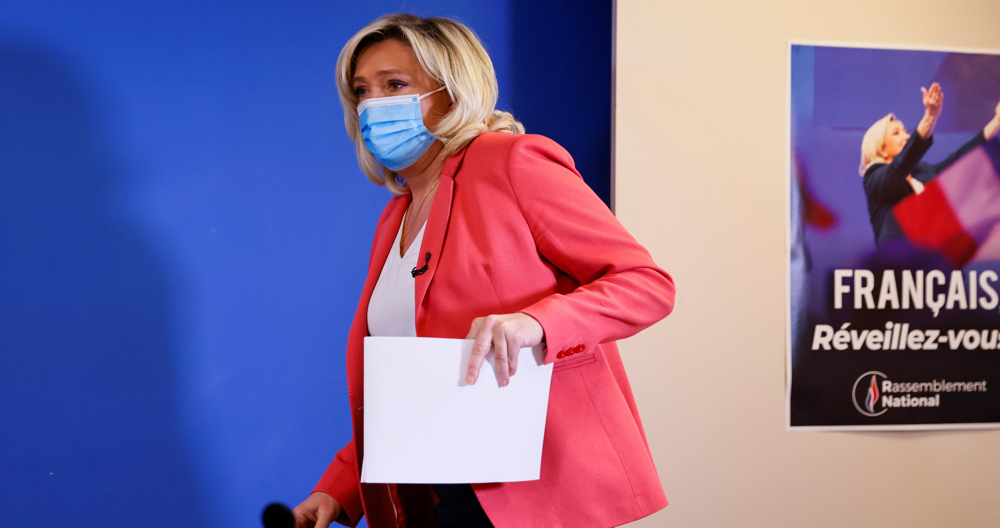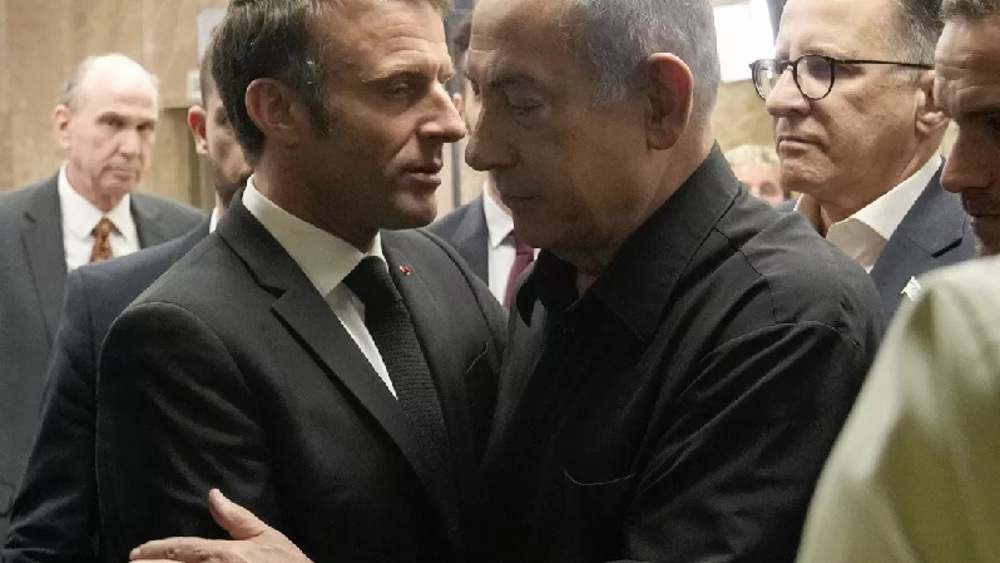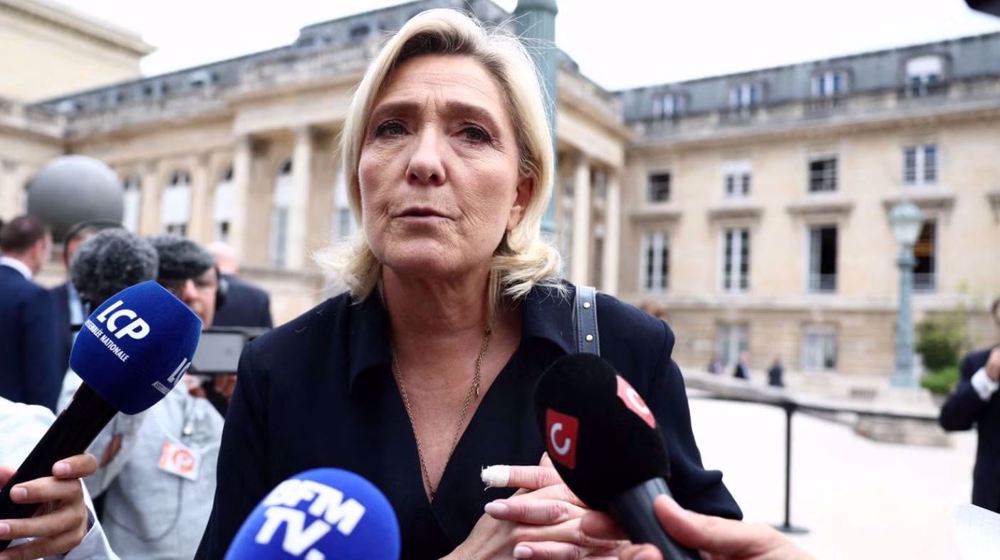France's Le Pen on stage again with anti-Muslim rhetoric
French far-right Presidential candidate Marine Le Pen has proposed a controversial ban on Muslim headscarves in all public places, in a country already accused of violating the "basic rights" of its Muslim community.
Le Pen, who lost the 2017 presidential election to President Emmanuel Macron, has now returned to her anti-Muslim and anti-immigration campaign, 15 months from the country’s 2022 election.
"I consider that the headscarf is an Islamist item of clothing," she told reporters at a press conference on Friday.
She has also proposed a new law to ban "Islamist ideologies" which she called "totalitarian and murderous."
Le Pen was tried and cleared of inciting religious hatred after comparing Muslims praying in the streets to the Nazi occupation, six years ago.
Earlier this week, a survey showed her within striking distance of President Macron.
The poll conducted online by Harris Interactive suggested that if a final-round presidential runoff were held today, Le Pen would garner 48 percent while Macron would be re-elected with 52 percent, Le Parisien newspaper reported.
Under France's presidential system, the top two candidates in a first round of voting progress to a second-round runoff where the winner must get more than 50 percent.
A Le Pen win "was improbable three and half years ago," according to political commentator Alain Duhamel.
"But today I wouldn't say that it is probable, but I'd say, without any pleasure, that it seems to me to be possible."
Jean-Yves Camus, a French political scientist specialized in the far-right, however, said that it was "too early to take the polls at face value.”
Le Pen, according to Camus, is now taking political advantage from a dual economic and health crisis caused by the coronavirus pandemic in the country, which is now on the verge of a third national lockdown.
Last year’s beheading of a French school teacher in a town northwest of Paris, had also “a major impact on public opinion,” said the expert.
French history teacher Samuel Paty was murdered in October, after showing defamatory cartoons of Islam's Prophet Muhammad to his students.
President Macron described his murder as an "Islamist terrorist attack," saying that Paty was killed because he "taught freedom of expression.”
Macron has recently come under scrutiny for describing Islam as “a religion that is today in crisis all over the world.”
His remarks sparked anger in the Muslim world, with millions calling for a boycott of French products as they took to the streets to protest against France.
His government has already come under fire for its failure to condemn French magazine Charlie Hebdo's republication of defamatory cartoons of Islam's prophet.
Many believed that the government’s silence was not to defend freedom of speech, but meant to stoke freedom of hate speech against Muslims.
The European nation with a Muslim population of more than 5 million — has also been criticized for undermining basic rights of the Muslim community.
A draft law, proposed by the Macron government in December, which is expected to be submitted to the National Assembly in February, targets the Muslim community and imposes restrictions on almost every aspect of their lives.
The controversial draft, which the governments says aims to fight "separatism," proposes to ban veiled students at the university and accompanying parents from displaying any religious symbols at school premises.
A 2004 law already prohibits the wearing or open display of religious symbols in all French schools, but it does not apply to universities.
A group of non-governmental organizations (NGOs), lawyers, and religious bodies, from 13 countries, submitted a formal complaint to the United Nations Human Rights Council (OHCHR) on Monday, calling on the body to take action against France’s “breadth of state abuse against Muslims.”
The group filed a lawsuit that says successive French governments have “entrenched structural Islamophobia and discrimination against Muslims,” for more than two decades.
The 36-member coalition accused France of failing to tackle systemic discrimination.
Israeli settlers torch Palestinian cars, homes in West Bank town
Iranian diaspora in EU, UK deplore ban on national airline
VIDEO | Press TV's News Headlines
Israel’s military struggling with shortage of troops: Report
Iran calls for more efforts to establish peace in Gaza, Lebanon
Israel targets journalists in southern Lebanon to mask atrocities
Trump vs Harris: A choice between two deranged war hawks who cheer genocide in Gaza
Over 1,800 Palestinians killed in Israel’s month-long attacks in northern Gaza














 This makes it easy to access the Press TV website
This makes it easy to access the Press TV website